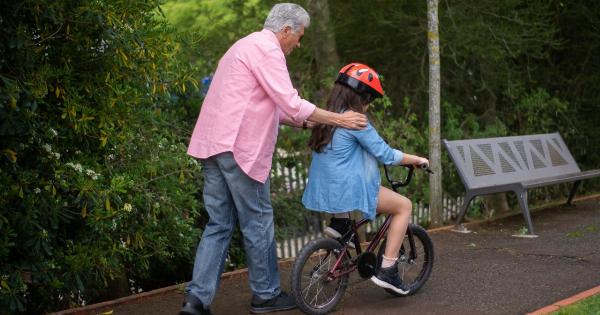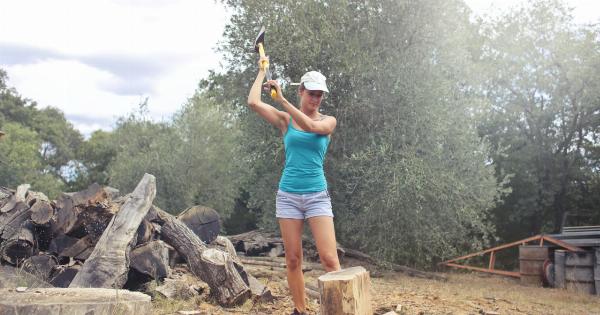As grandparents, one of our most heartfelt desires is to protect our grandchildren from harm and ensure their well-being. We strive to offer them a safe and nurturing environment, shielding them from any potential dangers.
However, there is a delicate balance between ensuring their safety and allowing them the freedom to grow and learn from their own experiences. In our quest to protect, we may unintentionally create a dilemma where grandparenting goes wrong.
The challenge of overprotection
Overprotective grandparenting occurs when our protective instincts become excessive and interfere with a grandchild’s normal development.
While it is natural to feel the need to shield our grandchildren from harm, overly strict rules and excessive control can have unintended consequences.
Overprotection may manifest in various ways, such as:.
- Constantly monitoring their activities, restricting their independence
- Not allowing them to take risks or face challenges
- Interfering in their relationships and social interactions
- Overemphasizing caution and fear, creating anxious grandchildren
While the intentions behind overprotection come from a place of love and concern, it may hinder a child’s growth and development. They may become overly dependent, lack problem-solving skills, and struggle with decision-making later in life.
The consequences of helicopter grandparenting
In extreme cases, overprotection can lead to helicopter grandparenting, where grandparents excessively hover over their grandchildren’s lives, scrutinizing their every move.
This level of overindulgence can have severe repercussions on a child’s independence, self-esteem, and overall well-being.
The consequences of helicopter grandparenting may include:.
- Impaired self-confidence: Constant scrutiny can make a child doubt their abilities and decision-making skills.
- Limited independence: Children who grow up under the constant supervision of helicopter grandparents may struggle to develop self-reliance and independence.
- Stunted social development: Overprotective grandparents may restrict a child’s social interactions, hindering their ability to form healthy relationships and navigate social dynamics.
- High levels of stress and anxiety: The pressure to constantly meet expectations and the fear instilled by helicopter grandparenting can lead to heightened stress and anxiety in grandchildren.
It is essential to recognize the signs of overprotection and helicopter grandparenting to foster a healthier grandparent-grandchild relationship and promote independent growth.
Finding the balance
Protecting our grandchildren is vital, but it is equally important to find a middle ground that allows them to develop their own skills, make choices, and learn from their experiences. Here are some strategies to strike the right balance:.
1. Open communication
Build a relationship based on trust and open communication. Encourage your grandchildren to express their feelings and thoughts without fear of judgment.
By sincerely listening to their concerns, you can better understand their needs and guide them without being overbearing.
2. Teach independence gradually
Gradually introduce age-appropriate responsibilities and tasks to foster independence. Allow your grandchildren to handle certain chores, make decisions, and face the consequences of their actions.
This will enhance their problem-solving skills and boost their self-esteem.
3. Encourage risk-taking within limits
Risk-taking is an essential part of learning and growth. Encourage your grandchildren to take calculated risks and step out of their comfort zones, while ensuring their safety.
Balancing caution with freedom will empower them to explore their boundaries and learn from both successes and failures.
4. Support their decision-making
Avoid imposing your decisions on your grandchildren. Instead, guide and empower them to make their own choices. Offer advice and insights, but ultimately let them take ownership of their decisions.
This will help them develop critical thinking skills and learn from the consequences.
5. Foster a sense of responsibility
Instill a sense of responsibility in your grandchildren by encouraging them to take care of their belongings, complete their tasks, and contribute to the family or community.
This will teach them accountability and the importance of fulfilling obligations.
6. Provide a safe space for growth
Create an environment where your grandchildren feel safe to explore and learn from their experiences. Be supportive, understanding, and empathetic when they encounter setbacks or challenges.
Assure them that mistakes are a part of life and offer guidance and encouragement to navigate through difficulties.
7. Respect their individuality
Every child is unique with their own strengths, weaknesses, and interests. Recognize and respect their individuality by nurturing their passions and encouraging their personal growth.
Avoid imposing your expectations and aspirations onto them, allowing them to find their own path.
8. Collaborate with parents
Grandparenting can be a collaborative effort with the parents. Communicate openly with your grandchildren’s parents and align your approach to ensure consistency and reinforce positive values.
Sharing concerns, experiences, and expectations can create a united front in supporting the grandchildren’s growth.
9. Seek guidance when needed
If you find yourself struggling to strike the right balance between protection and independence, don’t hesitate to seek professional guidance.
Family counselors or therapists can provide valuable insights and strategies to navigate through challenges and improve the grandparent-grandchild relationship.
10. Celebrate milestones and accomplishments
Lastly, celebrate your grandchildren’s milestones, accomplishments, and journey towards independence. Recognize their efforts and growth, reinforcing their confidence and building a strong bond of love and trust.
Conclusion
Grandparenting is a delicate dance of protection and letting go. While our love and concern for our grandchildren drive us to protect them from harm, excessive overprotection can hinder their development and independence.
Finding the right balance is essential to ensure their growth and well-being. By fostering open communication, encouraging independence, supporting decision-making, and collaborating with parents, grandparents can create a safe and nurturing environment where grandchildren can thrive and develop into confident individuals.
It is through this delicate dance that we can overcome the dilemma of protecting our grandchildren while allowing them the freedom to flourish.






























